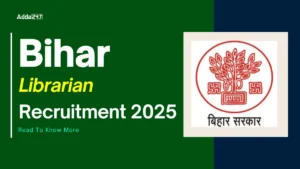Table of Contents
Choosing to pursue Research & Academics as a career path after your Master’s degree is one of the most ambitious goals one can set for themselves. It comes with its own set of obstacles & challenges. As UGC has been revising UGC Regulations, you need to have precise and accurate information regarding different aspects of Ph.D. and fellowships to progress in your field. One such question often asked by students new to this field is whether JRF is compulsory for Ph.D. Well, let’s understand everything in detail for absolute clarity.
What is JRF?
JRF stands for Junior Research Fellowship. It is a prestigious research fellowship awarded to candidates who clear the UGC NET (University Grants Commission National Eligibility Test) examination and rank among the top candidates. A Ph.D. degree takes up a lot of time and money. JRF is offered to support and promote research activities among Ph.D. candidates and research scholars by providing them with monthly stipends. Here are important Facts about JRF
- JRF Full form: Junior Research Fellowship
- Purpose: JRF is a prestigious fellowship awarded to candidates to financially support their pursuit of research in various fields, including science, humanities, social sciences, and engineering.
- only 6% of UGC NET Qualified Candidates per year receive the JRF.
- Stipend: The Revised stipend for JRF has been revised i.e. Rs 37,000 for the first two years and Rs 42,000 for the rest of the period.
- Validity: Unlike NET certificates, valid for a lifetime, a JRF certificate is only valid for 3 years, during which the candidates must take admission into a Ph.D. Degree Course under any recognized university in India for their specific subject.
What is a PhD. degree?
A PhD. or Doctor of Philosophy is the highest level of academic qualification one can achieve in a particular subject. It is a doctoral research degree that takes anywhere from 3 to 6 years to complete. During this period, the doctoral candidate must research and write a thesis offering an original contribution to the subject. After completing the degree, you will be conferred with the title of Doctor.
Eligibility Criteria for Ph.D.
The minimum educational requirements to pursue a Ph.D. in India are:
- A candidate must have a master’s degree from a recognized university or institution with a minimum of 55% marks or equivalent.
- In the case of a four-year degree, a minimum of 75% marks or equivalent grade.
- The master’s degree, or the four-year degree, should be in the area of research for the Ph.D. one wishes to pursue.
- Apart from this, some universities also have specific subject-wise requirements.
Is JRF compulsory for Ph.D.?
As UGC has released revised Phd Eligibility Criteria with making UGC NET requirement. NET Score will be categorized to determine eligibility for PhD admission with or without JRF funding, as well as Assistant Professor positions. It clearly states that there is no such requirement as JRF will be compulsory for PhD. A JRF is merely an add-on for the candidate to be financially stable during the Ph.D. degree course. Even though the JRF is not mandatory, it is still desirable to have as it has numerous benefits as per University Requirements.
Benefits of the JRF:
There are plenty of reasons why all students looking to jump-start their career in Research & Academics look to get the Junior Research Fellowship. The benefits are numerous and will aid you in advancing your career.
- Financial Stability – The Most evident impact of a JRF is the direct financial assistance in the form of a monthly stipend. After getting admission into the Ph.D. degree with JRF, candidates will receive a healthy monthly stipend.
- A desired addition to the resume – It is also like a brownie point that adds to your resume. It gives you an edge over the other candidates.
- Will fund your research expenses – Research work is expensive, you need to travel for various purposes, and there are other expenses you incur like books, seminars, conferences, etc. Your monthly stipend will help you with managing these expenses.
- Preferential admission quota – 60% of the total seats for Ph.D. in any university or college has to be mandatorily filled by candidates with NET/JRF. Thus, you have a better chance of getting into a college of your choice.
- SRF & increased Stipend – After the initial two years into your Ph.D., your designation will change to Senior Research Fellow along with an increased monthly stipend as well.
| Important Links | |
| JRF Salary after DST Hike in Stipend | UGC NET JRF Fellowship Per Month |




 WBSSC SLST Notification 2025 Out, Apply ...
WBSSC SLST Notification 2025 Out, Apply ...
 Jharkhand JSSC Teacher Vacancy 2025, Not...
Jharkhand JSSC Teacher Vacancy 2025, Not...
 Bihar Librarian Vacancy 2025 Notificatio...
Bihar Librarian Vacancy 2025 Notificatio...




